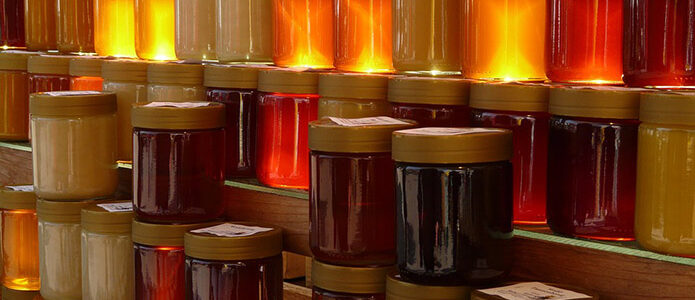
Bulgaria’s Minister of Agriculture and Food Georgi Takhov asked the European Commission to take safeguard measures against honey imports from Ukraine at a meeting of the EU Agriculture and Fisheries Council, and his request was supported by a representative of Romania, the Bulgarian Ministry of Agriculture reported.
According to Takhov, imports of Ukrainian honey make it difficult to sell local products. The fact is that significant volumes of Ukrainian honey entering the European market at very low prices put a lot of pressure on Bulgarian honey prices.
“In addition to the many challenges facing the industry, over the past three years it has also faced competition from imports from Ukraine. The volume of honey imported from Ukraine to our country from January to October 2024 increased by more than 30% compared to the same period last year,” Takhov emphasized and added that the high level of imports from Ukraine puts Bulgarian producers in a difficult situation.
At a press conference following the meeting of EU agriculture ministers, Hungarian Agriculture Minister Istvan Nagy explained that Bulgaria and Romania demanded safeguard measures for imports of honey from Ukraine to the European Union, as the duty-free quota set in the autonomous trade liberalization has been exhausted, and “the duty creates problems in domestic markets burdened by imports.”
“The measure – the so-called ATM regulation – has been exhausted, but the amount of honey coming from Ukraine is still subject to duty, which also creates problems in domestic markets that are burdened by imports,” the Hungarian Ministry of Agriculture quoted him as saying.
Nagy emphasized that effective measures should be taken to prevent counterfeit honey from entering the EU market, for example, by labeling and separating natural and non-natural honey. He also believes that it is necessary to compensate for the “emerging competitive disadvantages” and to further support the beekeeping sector.
As reported, on August 20, the European Commission imposed tariff quotas on Ukrainian honey due to the excess of quota-free volumes of its supplies to the European market. Imports of honey from Ukraine from the beginning of 2024 to August exceeded the quota of 44.418 thousand tons. Additional imports are subject to most favored nation (MFN) duties. In particular, a new tariff quota will be introduced from January 1, 2025, until June 5, 2025, which corresponds to 5/12 of the threshold set for the emergency braking. For honey, the new quota will amount to 18,507 tons.
From June 2, 2024 to June 5, 2025, the European Commission introduced quotas for the supply of eggs and sugar to the European Union. For eggs, the new quota is set at 9,662 thousand tons, and for sugar – at 109,44 thousand tons.
On May 13, 2024, the Council of the European Union approved the extension of temporary trade liberalization measures for Ukraine for another year, until June 5, 2025. At the same time, it was envisaged to apply an emergency braking mechanism for particularly sensitive agricultural products, including sugar, eggs, poultry, oats, corn, honey, and cereals, in case imports of these products in 2024 exceed the average volumes recorded in the second half of 2021 and during 2022 and 2023. Similar emergency braking measures may be applied in 2025 if, in the period from January 1 to June 5, 2025, the volume of Ukrainian exports exceeds 5/12 of the quota set for 2024.
According to Art. 4(7) of the Regulation on autonomous trade measures applicable to Ukrainian products, Ukraine will be able to supply to the EU from June 6, 2024 to June 5, 2025 without paying any duty 57,101 thousand tons of poultry meat, 9,662 thousand tons of eggs, 109,439 thousand tons of sugar, 18,507 thousand tons of honey, 4.648 million tons of corn, 1,017 thousand tons of oats, 8,603 thousand tons of cereals.